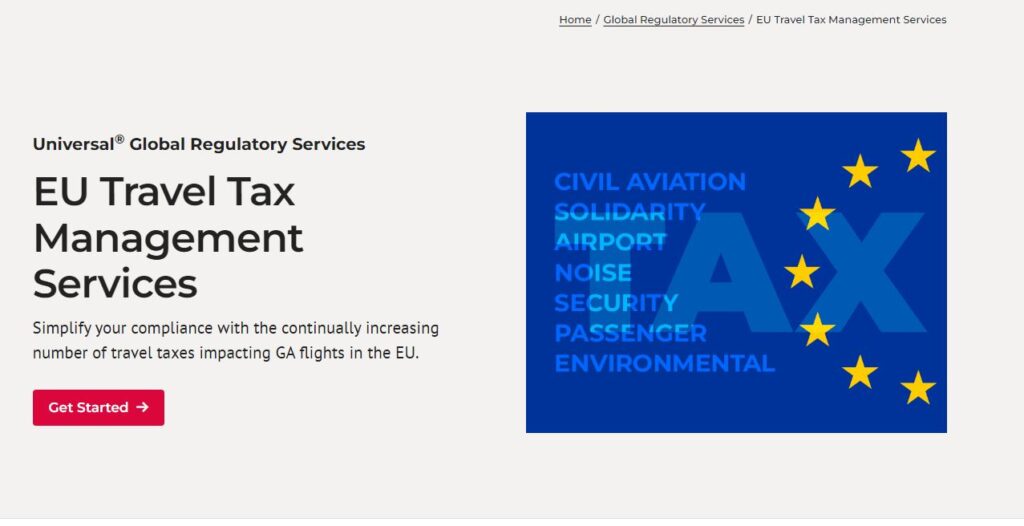Austria Air Transport Levy (ATL): What Business Aviation Operators Need to Know

Operating a business aviation flight into Austria? Here’s everything you need to know about Austria’s Air Transport Levy (ATL) and how it impacts your operations.
Overview of Austria’s Air Transport Levy (ATL)
Austria imposes an Air Transport Levy (ATL) on passengers departing from major airports in the country. This tax applies specifically to commercial and charter flights, directly impacting business aviation operators serving Austrian destinations.
Applicability

The ATL is applicable to all commercial and charter flights departing from any of the following Austrian airports:
- Vienna (LOWW)
- Salzburg (LOWS)
- Innsbruck (LOWI)
- Graz (LOWG)
- Linz (LOWL)
- Klagenfurt (LOWK)
All flights operated by aircraft with a Maximum Take-Off Weight (MTOW) exceeding 2,000 kg (approximately 4,400 lbs) are subject to this levy.
Rates and Calculation
ATL rates depend primarily on the distance of the flight. Operators should note the following guidelines:
- Short-haul flights (under 350 km) have a higher per-passenger rate.
- Medium- and long-haul flights carry lower rates compared to short-haul domestic and very short international flights.
- Domestic flights subject to Austrian VAT may slightly benefit from reduced effective rates, as VAT payments can offset portions of the ATL.
Collection and Reporting
Operators are responsible for collecting the levy from passengers at the time of booking or departure and must remit the collected amounts directly to Austrian tax authorities. Timely reporting and payment of this levy are essential to avoid potential fines or operational disruptions.
Exemptions
While the ATL broadly applies to most commercial and charter passengers, exemptions exist for certain categories, including:
- Crew members actively on duty
- Infants under two years of age without a dedicated seat
- Transit and transfer passengers not formally entering Austria
- Certain repositioning and emergency flights
However, standard business aviation charter flights typically do not qualify for these exemptions.
Practical Considerations for Operators
To ensure compliance and mitigate potential disruptions:
- Clearly inform passengers about applicable ATL charges during the booking process.
- Ensure accurate record-keeping and timely payments to Austrian tax authorities.
- Coordinate closely with your local ground handler, who can assist with procedural guidance and facilitate payments if required.
Simplify Your Tax Compliance

Avoid administrative burdens and ensure compliance across Europe by leveraging Universal’s EU Travel Tax Management Services. Our dedicated team handles all aspects of your tax reporting and payment obligations, so you can focus on your mission.
Learn more about our EU Travel Tax Management Services.
Alternate Options
Operators concerned about ATL costs may consider arranging travel to alternative nearby airports in neighboring countries (such as Munich in Germany or Bratislava in Slovakia), depending on passenger itineraries, convenience, and operational feasibility.
Conclusion

Austria’s ATL adds a layer of complexity and cost to business aviation operations. Advance planning and clear communication with passengers, along with diligent tax compliance practices, can help streamline operations and avoid costly disruptions.




